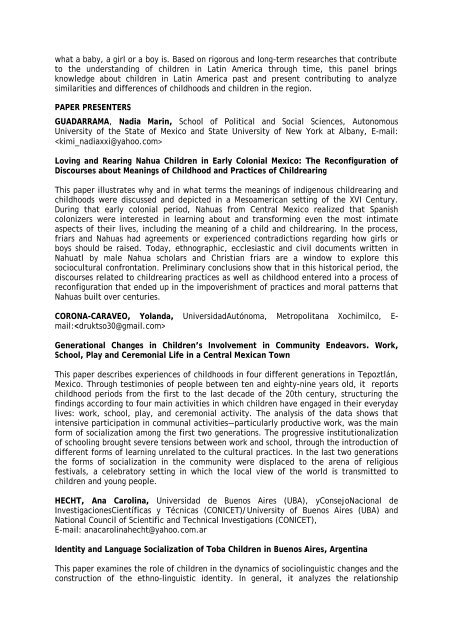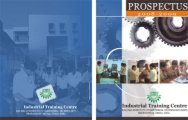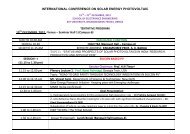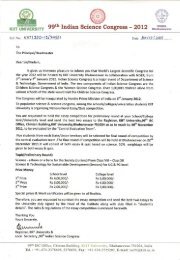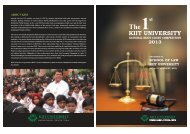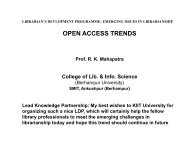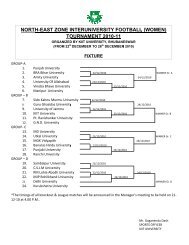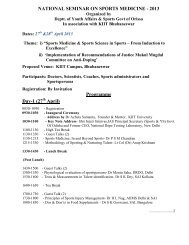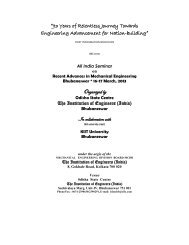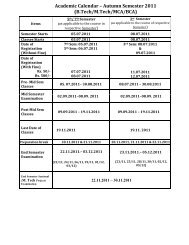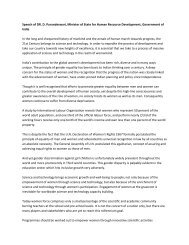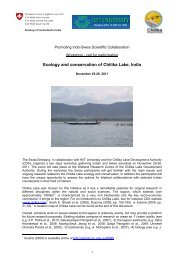PANEL ORGAN - KIIT University
PANEL ORGAN - KIIT University
PANEL ORGAN - KIIT University
Create successful ePaper yourself
Turn your PDF publications into a flip-book with our unique Google optimized e-Paper software.
what a baby, a girl or a boy is. Based on rigorous and long-term researches that contribute<br />
to the understanding of children in Latin America through time, this panel brings<br />
knowledge about children in Latin America past and present contributing to analyze<br />
similarities and differences of childhoods and children in the region.<br />
PAPER PRESENTERS<br />
GUADARRAMA, Nadia Marin, School of Political and Social Sciences, Autonomous<br />
<strong>University</strong> of the State of Mexico and State <strong>University</strong> of New York at Albany, E-mail:<br />
<br />
Loving and Rearing Nahua Children in Early Colonial Mexico: The Reconfiguration of<br />
Discourses about Meanings of Childhood and Practices of Childrearing<br />
This paper illustrates why and in what terms the meanings of indigenous childrearing and<br />
childhoods were discussed and depicted in a Mesoamerican setting of the XVI Century.<br />
During that early colonial period, Nahuas from Central Mexico realized that Spanish<br />
colonizers were interested in learning about and transforming even the most intimate<br />
aspects of their lives, including the meaning of a child and childrearing. In the process,<br />
friars and Nahuas had agreements or experienced contradictions regarding how girls or<br />
boys should be raised. Today, ethnographic, ecclesiastic and civil documents written in<br />
Nahuatl by male Nahua scholars and Christian friars are a window to explore this<br />
sociocultural confrontation. Preliminary conclusions show that in this historical period, the<br />
discourses related to childrearing practices as well as childhood entered into a process of<br />
reconfiguration that ended up in the impoverishment of practices and moral patterns that<br />
Nahuas built over centuries.<br />
CORONA-CARAVEO, Yolanda, UniversidadAutónoma, Metropolitana Xochimilco, E-<br />
mail:<br />
Generational Changes in Children’s Involvement in Community Endeavors. Work,<br />
School, Play and Ceremonial Life in a Central Mexican Town<br />
This paper describes experiences of childhoods in four different generations in Tepoztlán,<br />
Mexico. Through testimonies of people between ten and eighty-nine years old, it reports<br />
childhood periods from the first to the last decade of the 20th century, structuring the<br />
findings according to four main activities in which children have engaged in their everyday<br />
lives: work, school, play, and ceremonial activity. The analysis of the data shows that<br />
intensive participation in communal activities—particularly productive work, was the main<br />
form of socialization among the first two generations. The progressive institutionalization<br />
of schooling brought severe tensions between work and school, through the introduction of<br />
different forms of learning unrelated to the cultural practices. In the last two generations<br />
the forms of socialization in the community were displaced to the arena of religious<br />
festivals, a celebratory setting in which the local view of the world is transmitted to<br />
children and young people.<br />
HECHT, Ana Carolina, Universidad de Buenos Aires (UBA), yConsejoNacional de<br />
InvestigacionesCientíficas y Técnicas (CONICET)/<strong>University</strong> of Buenos Aires (UBA) and<br />
National Council of Scientific and Technical Investigations (CONICET),<br />
E-mail: anacarolinahecht@yahoo.com.ar<br />
Identity and Language Socialization of Toba Children in Buenos Aires, Argentina<br />
This paper examines the role of children in the dynamics of sociolinguistic changes and the<br />
construction of the ethno-linguistic identity. In general, it analyzes the relationship


